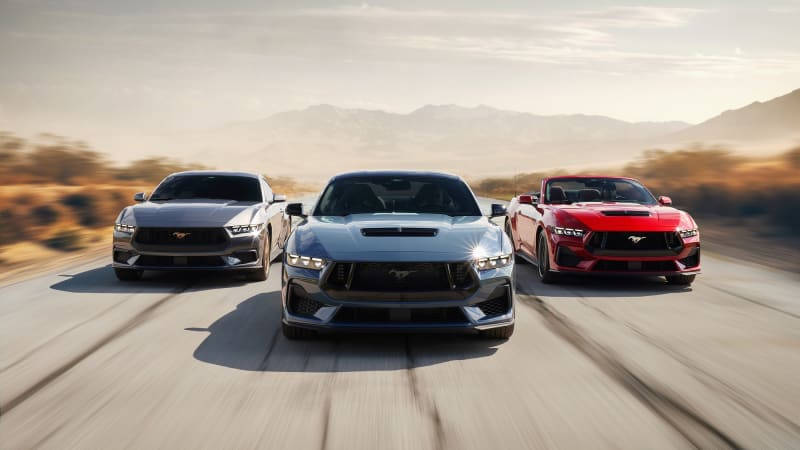Ford says it might not go EV-only in Europe by 2030 after all

In 2021, Ford announced plans to sell exclusively electric cars in Europe by 2030. Two years later, faced with falling EV sales, the brand admitted that its European division may not be electric-only by the end of the decade as planned. It ultimately depends on market demand.
Martin Sander, the head of Ford’s passenger-car business in Europe, made the announcement at the Financial Times Future of the Car conference. “If we see strong demand, for instance for plug-in hybrid vehicles, we will offer them,” he said, according to industry trade journal Automotive News Europe (subscription required). He conceded that demand for electric cars has been “softer” than originally expected.
Ford still plans to go all-electric in Europe — it needs to, as a law scheduled to come into effect in 2035 will ban the sale of most new ICE-powered vehicles — but it will instead “manage our way toward 100% electric drivetrains,” according to Sander. As of writing, its European range of electric vehicles includes the Explorer, which is unrelated to the American-market SUV and based on a Volkswagen platform, the Mustang Mach-E, and a version of the Transit van. Additional electric cars, including a second Volkswagen-based model, are on their way.
The political climate in Europe puts Ford, and many of its peers and rivals, in a pickle. Automakers can build the cars regulators want and lose sales, or they can build the cars buyers want and pay fines. This tug-of-war will undoubtedly create friction points between the car industry and lawmakers in the coming years, but Ford has already found a way out: it will simply allocate fewer cars to certain markets.
“We are not going to pay penalties. We are not going to sell electric vehicles at huge losses just to buy compliance. The only alternative is to take our shipments of ICE vehicles for the United Kingdom and sell them somewhere else,” Sanders explained, referring to the fines Ford might have to pay in the United Kingdom, its largest European market, if it doesn’t meet EV quotas. This could be problematic, because there aren’t many right-hand-drive markets around the world. Australia wants trucks; Japan-only models dominate the Japanese market.
Closer to home, Cadillac recently came to the same conclusion. Its plans to offer an electric-only range by 2030 have derailed. John Roth, the brand’s global vice president, admitted that gasoline-powered cars will be sold alongside electric models “for a number of years.”





